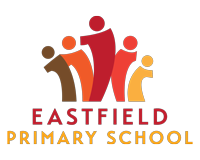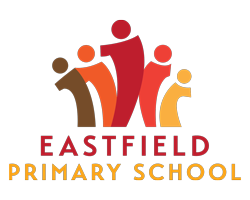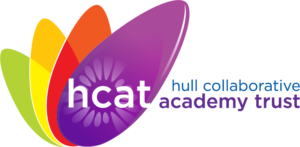Reading
Intent ‘Learning to read transforms lives.’ (World Literacy Foundation 2015)
For children to exceed in education and grow to be successful adults, reading is given high priority at Eastfield. We have two main goals, each with equal weighting:
To teach all children how to read
To teach all children why to read
These goals shape the Eastfield style of reading instruction to ensure that regardless of background, needs or abilities:
Pupils are taught to read fluently and with understanding.
Pupils understand the benefits of reading – as a crucial life-skill necessary for accessing and achieving academic success in all areas of the curriculum and beyond.
Pupils leave Eastfield as confident, independent readers with a life-long passion to explore books for pleasure in order to be able to lead a culturally enlightened and fulfilled life.
Implementation
In reading, we look for opportunities to make links across the curriculum, to develop children’s understanding and broaden their subject knowledge to look at what they are learning through a range of subject perspectives and immerse themselves in appropriate texts that complement their understanding and experiences of the world, develop their vocabulary and are accessible to all, but challenging enough for even our most gifted readers.
Teaching phonics (See phonics LTP)
Direct reading instruction at Eastfield begins in the early years through daily systematic and synthetic phonics. We follow the Little Wandle Letters and Sounds Revised Programme, to provide a synthetic approach to the teaching of phonics, from Foundation Stage, through KS1 and into KS2. The programme focuses on securing word recognition skills, essential for children to decode (read) and encode (spell) words accurately and language comprehension. The program is complemented with purposeful talk and the use of shared reading experiences which expose children to a wider range of vocabulary and genre. Phonics is taught discretely daily for initially 10 minutes, building to full 30 minutes lessons. Each session follows a four-part structure for children to revisit their previous experience, be taught new skills, practise together and apply what they have learned. Children are heard to read within small groups at least once per week with either an ASA or teacher. Teachers draw upon observations and continuous assessment to ensure children are stretched and challenged, and to identify those children who may need additional support.
Teaching early reading: Reading practice sessions three times a week
We teach children to read through reading practice sessions three times a week. These:
are taught by a fully trained adult to small groups of approximately six children
use books matched to the children’s secure phonic knowledge using the Little Wandle Letters and Sounds Revised assessments and book matching grids on pages 11–20 of ‘Application of phonics to reading’
are monitored by the class teacher, who rotates and works with each group on a regular basis.
Each reading practice session has a clear focus, so that the demands of the session do not overload the children’s working memory. The reading practice sessions have been designed to focus on three key reading skills:
decoding
prosody: teaching children to read with understanding and expression
comprehension: teaching children to understand the text.
In Reception these sessions start in Week 4. Children who are not yet decoding have daily additional blending practice in small groups, so that they quickly learn to blend and can begin to read books. In Year 2 and 3, we continue to teach reading in this way for any children who still need to practise reading with decodable books.
By KS2 we expect all children to be ready for whole class reading sessions which are undertaken daily.
Whole class reading KS2
The focus is on vocabulary development, the development of specific reading skills as outlined in the national curriculum and immersion in a wide range of texts. These lessons use class texts (which are often, but not always, linked to other curriculum content) as a stimulus. Pupils will study at least one novel each term and their reading lessons are supplemented with a variety of other genres including picture books, poetry, song, film and non-fiction as well as ‘cold’ texts, which are extracts that allow the children to apply their new reading skills independently. The reading subject leaders, in collaboration with teaching staff, choose the key texts to ensure that reading challenge is both progressive throughout the age range and provides a broad range of genre, themes, cultural experience and gives consideration to diversity and equality.
We have high expectations for our pupils so we choose texts that are challenging – with vocabulary that even our most gifted readers will not have experienced. We do this so that children are exposed to more ambitious vocabulary – safe in the context of whole class reading where concepts are explained by the teacher through ‘book talk’. Tier 2 words (often from the key text but also those that account for 10% of all common words that appear in academic texts at a primary level) are planned and explicitly taught during reading lessons and across the curriculum – often preloaded in order to scaffold and help all children access age-related class reads.
Lessons are planned weekly giving consideration to the following key areas:
Context / pre-reading work
We pre-teach context and themes (where relevant) to allow all children without prior knowledge to access the text. We use techniques to help children to live and breathe stories and their contexts – feel emotions, discover themes and visit places they might never have experienced for themselves. We use Royal Shakespeare Company ‘rehearsal room techniques’, drama and preloading of knowledge required to fully enjoy a text.
Fluency
Every reading lesson involves developing fluency in a variety of ways to ensure reading is not formulaic and disengaging to the children. These include read alouds, choral reads, echo reads, partner reads, group reads. This enables teachers to hear every child read at least weekly and make an assessment. All teachers read to the children every day; both during reading lessons and as ‘class read for pleasure’ (often a story chosen by the children themselves or guided based on the need to expose children to diversity) which allows for book talk. They show pupils that they enjoy reading and model fluency and comprehension by explaining the process of active reading. Each week teachers plan a focus lesson in which they model and allow children to practise a specific element of fluency. These are:
Accuracy: Letter and word reading
Rate: Automaticity and speed
Prosody: Emphasis, tone, phrasing, regard to punctuation and volume / pitch
Comprehension: Understanding and reading for meaning
Vocabulary
We teach a combination of tier 2 vocabulary which accounts for roughly 10% off all common words used in academic texts (selected for primary level), and tier 2 vocabulary found in our key texts that children need to understand in order to access the text before reading. Incidental tier 2 words encountered during and after reading are also planned and discussed. We provide vocabulary instruction daily in a variety of ways to keep reading interesting and this includes experiencing the word in different contexts and playing games for reinforcement.
Etymology – Latin and Greek words account for over 60% of all English words (rising to over 90 % of multisyllabic words and for vocabulary of sciences and technologies) and therefore we explicitly teach at least one Latin or Greek root word per week and these are mapped across KS2 progressively.
Skills practice
We provide children with plenty of opportunities to develop certain skills essential for becoming proficient readers such as using a dictionary, monitoring and questioning, making connections, building a situational model through visualisation, wringing a text for meaning (close reading), reading at speed, skimming, scanning, building stamina and improving memory and spatial manipulation.
Comprehension / response / review
Using our knowledge of the reading curriculum and the needs of our children, we plan lessons to support the understanding of each of the following assessment elements:
Vocabulary
Retrieval
Inference
Text structure
Comparison and contrast
Key texts have been chosen based on the opportunities they offer to build background knowledge and extend vocabulary. Each week, one or two lessons may focus on one of the assessment elements above and children are taught strategies specific to that area through ‘active reading’ and teacher modelling. The rest of the week is spent exploring and enjoying the text as a whole.
Teachers plan activities which allow children to respond to a text in a variety of ways in order to demonstrate their understanding and appreciation. This includes providing opportunities to share what a word or text means to them through regular book talk; annotating texts with ideas, predictions, discoveries and questions; performing; relating their experiences and expressing what they like and don’t like. Children are taught to compose verbal and written responses to answer questions of varying cognitive demand and posed in a variety of different ways (multiple choice, extended response) to assess their understanding.
Home reading
At Eastfield, we understand the importance of developing a collaborative approach to reading with parents. Children who read and are read to in the home are more likely to read for pleasure, achieve academic success and lead fulfilled adult lives. To this end, we involve parents at every step of the journey by holding yearly reading information evenings – explaining how to help children read at home at each key stage; modelled phonics lessons in EYFS; family stay and read sessions for KS1; phonics education workshops and drop-ins.
In EYFS and KS1, a fully decodable reading practice book is taken home or provided online to ensure success is shared with the family. Reading for pleasure books also go home for parents to share and read to children. We use the Little Wandle Letters and Sounds Revised parents’ resources to engage our families and share information about phonics, the benefits of sharing books, how children learn to blend and other aspects of our provision, both online and through workshops.
We encourage parents to read with their child at least 4 times per week as part of our ‘Regular Readers’ program. Children who read regularly at home receive an invitation to the Starbooks Cafe where they can enjoy a drink and sample a range of good books at the end of each half term giving them an exciting incentive. Regular readers are also celebrated weekly in whole school assembly.
Reading for Pleasure
We provide many opportunities for children to develop a love of reading throughout the school year and we work hard to ensure reading is celebrated as a highly regarded subject at Eastfield. On top of story-times for pleasure, a welcoming and bright library, quality key texts and lessons that are creative and engaging and our very own reading dog, we hold many reading celebrations and extra-curricular activities. Classroom book corners have been carefully designed to include quality texts – specifically chosen so as to offer a diverse range of genre, style, author and character. Each class has a set of 6 high-quality books called ‘Starbooks’ so that children can enjoy the experience of having ‘books ion common’. Familiar reads such as books they have read in previous years are available to read again as well as more accessible texts to cater for all. We have created a poetry spine and children will experience and become very familiar with 2 carefully chosen poems per term. Children receive a yearly visit to the local library where they spend the morning enjoying books and listening to stories. We hold an exciting World Book Day event each year which sees children dressing up and enjoying a carefully chosen book for the whole school and fun and exciting activities arranged for the day. We work with local and national authors to visit the school and talk to them about their work and some children take part in the regional book awards challenge.
Intervention
Through careful monitoring and tracking, teachers identify children who are not making the expected progress and therefore need intervention to catch up. Daily Keep-up lessons ensure every child learns to read. Any child who needs additional practice has daily Keep-up support, taught by a fully trained adult. Keep-up lessons match the structure of class teaching, and use the same procedures, resources and mantras, but in smaller steps with more repetition, so that every child secures their learning.
We timetable phonics lessons for any child in Year 2 or 3 who is not fully fluent at reading or has not passed the Phonics Screening Check. These children urgently need to catch up, so the gap between themselves and their peers does not widen. We use the Little Wandle Letters and Sounds Revised assessments to identify the gaps in their phonic knowledge and teach to these using the Keep-up resources – at pace.
If any child in Year 3 to 6 has gaps in their phonic knowledge when reading or writing, we re-teach the Little Wandle programme again using assessments to identify gaps and plan phonics ‘catch-up’ lessons to address specific reading/writing gaps. These short, sharp lessons last 10 minutes and take place at least three times a week. Depending on the needs of individuals, this may include additional individual or small group work up to 3 times per week. It is important that children who are struggling to learn to read not only need to catch up with their peers, but also to continue to make progress. Children who do not require phonics ‘catch up’ but are still in the bottom 20% of readers receive 1-1 reading sessions twice weekly to build fluency. We pay careful attention to children who are non-regular readers and aim to provide these children with additional opportunity to read with our reading PAT (Pets as Therapy) dog, Pru and with our volunteers.
Impact
Our overall aim is for our pupils to read fluently, with understanding and enjoyment. We strive for pupils to understand the benefits of reading – as a crucial life-skill necessary for accessing and achieving academic success in all areas of the curriculum and beyond. We endeavour to ensure our pupils leave Eastfield as confident, independent readers with a life-long passion to explore books for pleasure in order to be able to lead a culturally enlightened and fulfilled life. We firmly believe that reading is the key to all learning and so the impact of our reading curriculum goes beyond the results of the statutory assessments. We give all children the opportunity to enter the magical worlds that books open up to them. We promote reading for pleasure as part of our reading curriculum and our children are encouraged to develop their own love of genres and authors and to review their books. This enhances a deep love of literature across a range of genres, cultures and styles.
Further Information
‘Eastfield has given my children the best start in their educational journey.’
‘Having opportunities for the children to take part in activities outside the classroom is a real positive.’
‘My child has progressed in lots of different ways whilst being at Eastfield primary school.’
‘Good updates on current activities and curriculum. Supportive staff.’
‘I’m very happy with my child’s progress, and can see how happy he enjoys his time learning.’
‘Excellent and varied extra curricular activities.’
‘Eastfield Primary School is a safe environment for my child to learn and grow.’
‘Excellent school that manages to involve all pupils.’
‘The school ethos is fantastic – my daughter comes home with a happy story every day.’
‘Brilliant school. My daughter has absolutely thrived since being here.’
‘The curriculum is delivered in a way that makes his education fun & exciting.’
‘It’s good to see the kids smile on their faces before school and after school.’
‘Members of our family have been pupils at Eastfield since 1975 – highly recommended.’
‘My child thoroughly enjoys coming to school and is making good progress.’
‘I have seen my child develop socially and academically during her time there.’
‘An outstanding school both academically and in sporting achievements with friendly staff.’




